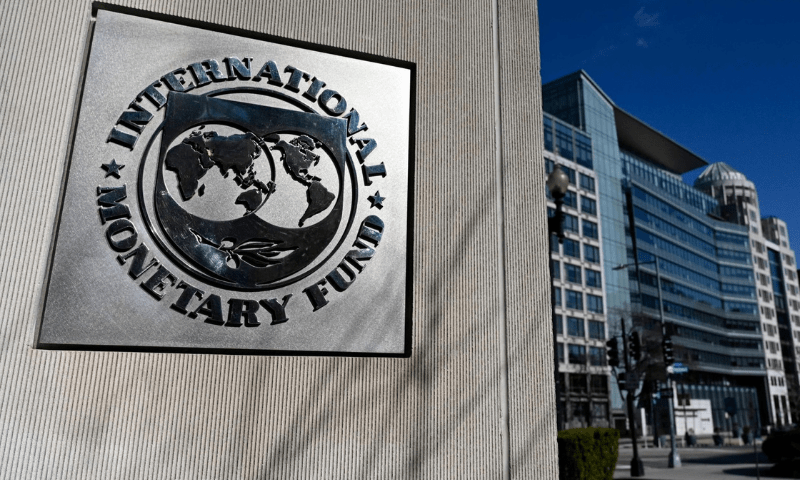ISLAMABAD: The Federal Board of Revenue and Supreme Court Bar Association (SCBA) representatives met the International Monetary Fund (IMF) mission on Monday to discuss a host of issues ranging from the tax transformation plan and enhancing actual collection efforts to judicial efficiency, contract enforcement, and property rights protection.
The IMF Governance and Diagnostic Assessment teams are in the capital to meet competent authorities and examine the governance structure of several ministries related to fiscal policy, tax policy, corruption, procurement, audits, and anti-money laundering.
A well-placed source told Dawn that the technical team has met tax officials to review the FBR indigenous plan, which was approved last year by the Prime Minister to reduce the existing tax gap, which the FBR estimates to be more than Rs7 trillion.
The IMF diagnostic evaluation is divided into four to five teams, with two members from each team for initiatives such as taxation, corruption, finance, audit, and money laundering. These teams met the relevant ministry to review their governance approach and identify any areas for improvement.
On Monday, the technical team that deals with tax got the initial briefing on the tax transformation plan. The plan evolved a significant focus on digitalisation and robust enforcement measures aimed at narrowing the tax gap and enhancing actual collection efforts. It also includes to transform all tax offices into model tax offices (MTOs) and streamline enforcement and intelligence directorates to reduce the menace of smuggling.
“We have given the technical team our first briefing,” the official said, adding the briefing would continue for the next two days. However, the team will hold a final meeting with the FBR chairman after the conclusion of the initial briefings. According to the official, the FBR briefed the team on planned measures that will further reform the governance structure, ultimately leading to an increase in tax collection in the coming year.
The plan aims to reduce the amount of cash currency in circulation to a level comparable to peers in the region. Pakistan has 25pc of currency in circulation, Bangladesh and India have 14pc, and Malaysia has over half at 7pc.
The suggested strategy to guarantee documentation included disallowing input on sales to unregistered entities and using digital invoicing to track unregistered purchasers. Notices will be given to unregistered entities, coupled with severe fines for noncompliance.
Judicial efficiency
Separately, an IMF delegation met the Supreme Court Bar Association (SCBA) and discussed judicial efficiency, contract enforcement and property rights protection. The meeting with the IMF mission was attended by presidents of SCBA, the High Court Bar Associations of Balochistan and Sindh.
The two sides resolved that economic and political stability and good governance was the cornerstone of the rule of law.
SCBA President Mian Mohammad Rauf Atta while recognising the importance of judicial efficiency viewed that for a vibrant and independent judicial system, judicial efficiency is one of the basic prerequisites. He apprised the mission that two important efforts are currently being made to enhance judicial efficiency: one on the judicial side and the other on the legislative side.
On the judicial side, he apprised the mission of the initiatives taken by the Chief Justice of Pakistan aimed at improving judicial efficiency, such as the introduction of an e-filing system replacing the orthodox filing system, revamping the case management system, expeditious disposal of pending cases, and introduction of video link facilities in the Supreme Court.
On the legislative side, the SCBA president apprised the mission that the recently introduced 26th Constitutional Amendment has been made with the aim of improving judicial independence, enabling the judicial system to work more efficiently and effectively.
The mission was also informed about other initiatives aimed at enhancing judicial efficiency, such as increasing the number of expert judges not only in the Supreme Court but also in high courts, introduction of a number of tribunals especially in tax matters and the creation of forums to resolve complex issues through Alternate Dispute Resolution (ADR) initiatives, ensuring that justice is served effectively at the grassroots level.
Regarding the issues of contract enforcement, the IMF mission was apprised that, albeit delays due to procedural inefficiencies, the government is trying its best to provide a conducive environment to attract and secure direct foreign investment, and special courts/benches are being introduced to adjudicate these matters.
Additionally, it was mentioned that articles 23 and 24 of the Constitution deal with the right to own property, and efforts are being made to strengthen anti-encroachment laws and enforcement mechanisms.
A questionnaire containing queries related to the aforesaid matters will be shared with SCBA by the mission, followed by a detailed response along with proposals and suggestions to be made by the other side.
Published in Dawn, April 15th, 2025


